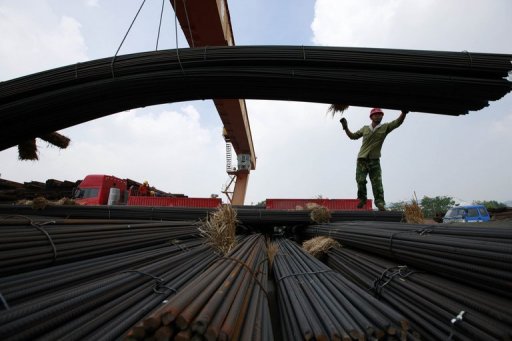In keeping with his administration’s philosophy of “leading from behind,” President Barack Obama filed a new complaint against China with the World Trade Organization (WTO) this week–after Republican nominee Mitt Romney began highlighting Obama’s failure to out-compete China in trade and manufacturing.
Not even the Obama-friendly Washington Post could explain away the rather shameful sequence of events:
The White House on Monday filed a complaint with the World Trade Organization over Chinese subsidies to its auto and auto parts industry, the latest in a series of actions dating back to 2009 to protest what U.S. manufacturers say are the unfair advantages China gives its own industries. The move came four days after Romney launched an advertising campaign accusing the president of allowing American manufacturing jobs to be lost to the Asian power.
Obama campaigned in 2008 on fears of Chinese economic dominance. But he also touted the supposed superiority of the Chinese economic model of state-driven development and infrastructure investment–a model that is now in doubt as Chinese economic growth slows and significant Chinese infrastructure projects are exposed as ghost-town boondoggles.
In addition, Obama’s stimulus–the center of his economic plan–illegally sent taxpayer dollars to China to pay for solar panels, even as his own government-backed solar panel boondoggle, Solyndra, collapsed. Other stimulus money also went to companies that outsource jobs to China.
The Obama administration has lodged no fewer than ten WTO complaints against China. But appealing to the WTO–and to protectionism–is a confirmation that the U.S. is losing. Lower wages and regulations in China are only part of the story. The refusal of the Obama administration to free key economic sectors–such as domestic energy–is also a factor. When President Obama turned away the Keystone XL pipeline, for example, Canada turned to China as an export destination for its fossil fuels, costing the U.S. thousands of potential jobs.
To the extent that Romney is appealing to some of the same protectionist impulses, he is opening himself up to some of the same criticism that has hit Obama. But his turn to China as a key topic in the presidential election–and Obama’s immediate reaction–shows that Romney knows it is a weakness for the President.
President Obama, apparently, agrees. His latest gesture may be too little, too late–and the wrong policy. But at least he can be prompted to act–when someone else is willing to lead.

COMMENTS
Please let us know if you're having issues with commenting.